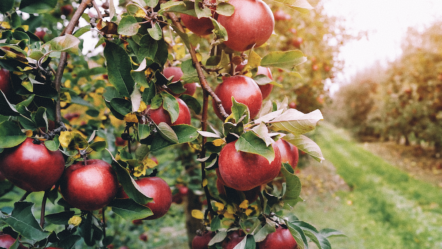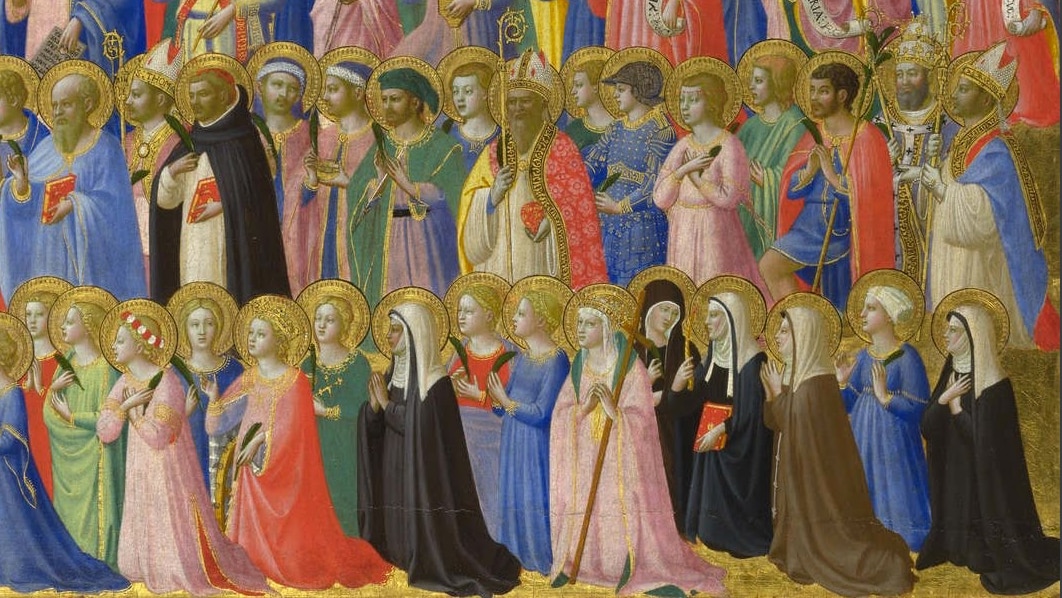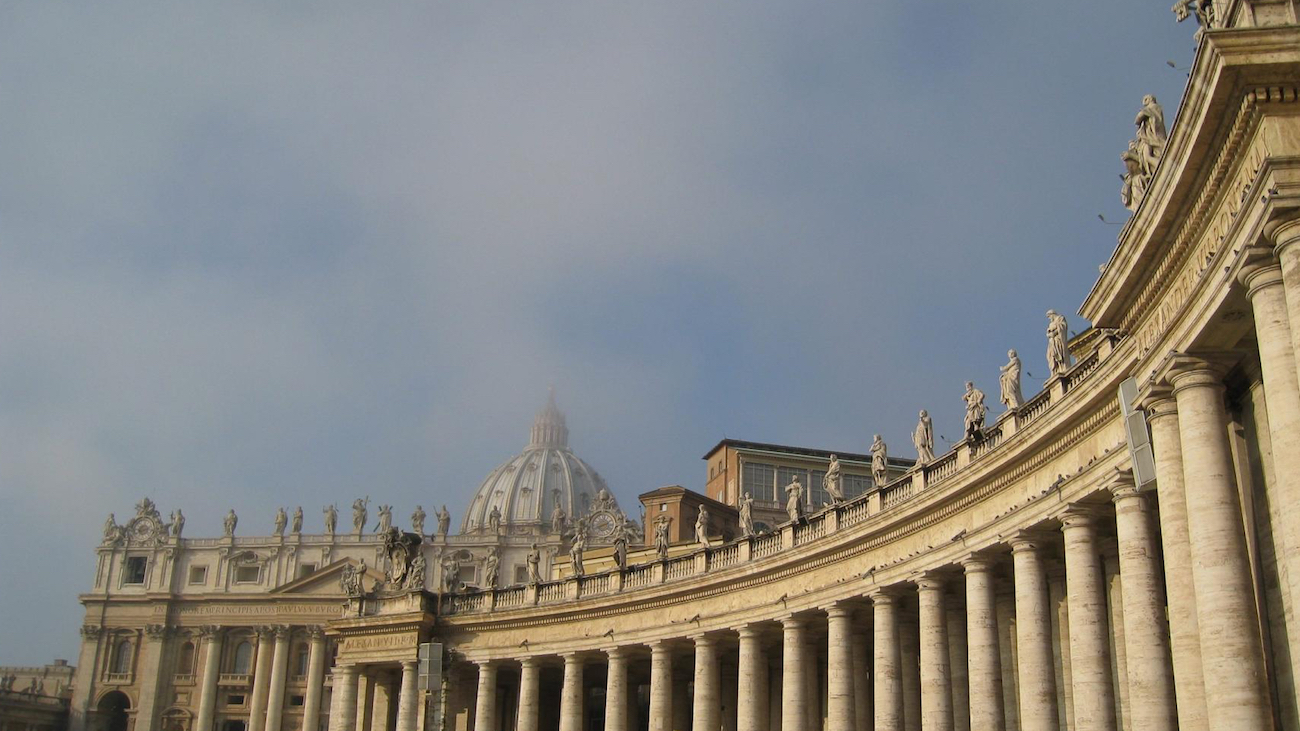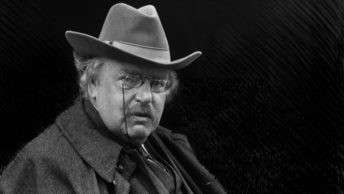Once upon a time there were three friends—Ralph, Reuben, and Roger—down on their luck and searching for work, but without success. Then they finally got very lucky: a wealthy landowner hired them to live on and take care of his large apple orchard. They were quite grateful and determined to do a good job. The men soon decided each of them should be in charge of one-third of the orchard, so they divided it into three sections by means of a small fence, posting signs every ten feet with their names on them. One day Ralph began picking apples from a tree on Reuben’s side of the fence, but whose branches crossed the fence onto his side. “What do you think you’re doing?” Reuben demanded; “this is my tree!” “Yes,” Ralph responded, “but the branch is on my side of the fence, so these are my apples!” The two quickly got into a fierce argument, so Ralph sawed off the branches and tossed them to Reuben, saying, “Okay, fine—they’re yours!”
Later that day the same thing happened when Ralph started picking apples from a tree on Roger’s side of the fence, and another nasty argument ensued. Soon the three former friends were furious with each other. Reuben built a fifteen-foot-high stone wall along the dividing line, with signs saying MINE, MINE, MINE painted on it every ten feet, and Roger built a similar fence, but with electrically-charged barbed wire along the top; behind it he put flagpoles from which fluttered banners emblazoned with the word MINE, MINE, MINE. Not to be outdone, Ralph built an even higher fence with watchtowers, from which he was able to see miles in every direction—for he had become paranoid over the idea of someone coming to steal his apples. What none of the men realized was the high towers and fences were now blocking the wind and the sun, and the trees were slowly but surely dying as a result, while producing only small and unhealthy apples.
The landowner heard what was happening, so he sent servants to tell the three former friends what they needed to do to restore the orchard to its original fruitfulness and beauty. However, Ralph, Reuben, and Roger were suspicious and assumed these outsiders were coming to collect what they now considered their apples—so they banded together long enough to drive the servants off, while refusing to listen to their message or advice. The owner of the orchard then sent his son, who implored the three to tear down their walls for their own good and the good of the orchard—but Ralph, Reuben, and Roger pelted him with stones so viciously that he fell down and died, even as they shouted in unison, “Mine, mine, mine!” The owner of the orchard wept when he learned what had happened—but for the time being he decided to do nothing, for he realized his three tenants were so consumed with viciousness and greed that they were already living in their own little hell (Andre Papineau, Biblical Blues, p. 25). Not all fairy tales have a happy ending, but they all contain a useful moral or lesson. When we choose to be selfish, we build a wall around us that blocks out God’s grace and peace, and cuts us off from the people in our lives. In a certain sense, when we become greedy, God doesn’t need to punish us—for we are already punishing ourselves. Jesus came to save us from this slavery to sin and selfishness—but we must choose to accept the freedom He offers.
This story about Ralph, Reuben, and Roger is, of course, an imaginative retelling of Our Lord’s parable from the Gospel of Matthew (21:33-43) where Jesus warns us that, instead of clinging to material or worldly things, we must use them in a way that glorifies God, helps other people, and thus prepares us for life in Heaven. This is how, according to St. Paul (Phil 4:6-9), the peace of God “will guard [our] hearts and minds in Christ Jesus.” If we wish to be blessed by God, we must be faithful workers in His vineyard—not bringing forth worthless wild grapes, as described by the prophet Isaiah (5:1-7), nor defying the authority of the owner, as occurred in Our Lord’s story. Ultimately, we are not owners of our lives and properties and possessions, but only stewards of them—and one day we will be held accountable for how we’ve used everything that’s been entrusted to us.
A Chinese legend tells of a man so consumed by greed and the desire for gold that he went to the city marketplace, entered a shop selling the precious metal, grabbed some of the coins, and ran away. However, this crime was witnessed by the police, and he was immediately apprehended by them. They asked, “How could you rob someone else’s gold in broad daylight, and in front of us and all these people?” The criminal answered very simply, “When I reached for the gold, I saw only gold; I didn’t see any people.”
Many persons today live in a selfish spirit; while they’d never do something like this for fear of getting caught, they might allow greed or possessiveness to poison their hearts, their relationships, and their outlook on life. We would never do anything like that—but might there not be other ways in which we act like spoiled two-year-olds, who want what they want, who shout “Mine, mine!,” and who cry when they don’t get their way? If someone snubs or insults us, do we give that event more attention than it deserves, or fantasize about somehow getting even? If we see someone act in a foolish or offensive manner, are we tempted to look down on the person while smugly clinging to our feelings of superiority? Do we live with a sense of entitlement, or always insist on getting the last word, or believe that our needs and desires must always take priority over those of everyone else? Do we become so focused on protecting what we consider our rights and dignity and status that we fail to recognize Christ’s presence in the people around us? We must not imprison ourselves behind walls of selfishness, hurt feelings, or an attitude of “Looking out for #1,” the way Ralph, Reuben, and Roger did to their lasting regret. Jesus is offering us spiritual freedom—but this freedom requires us to live in a spirit of generosity, self-surrender, and trust. Many people in Our Lord’s day closed their ears to this truth, and this tragic state of affairs is even more pronounced today. You and I are instead called to demonstrate to the world that there’s a different and better way to live, a way of self-giving that leads to true and lasting happiness and peace. This is how we will bear fruit for the Kingdom of Heaven; this is how we will avoid wasting our lives, and how we will become worthy of all the blessings God has in store for us.








